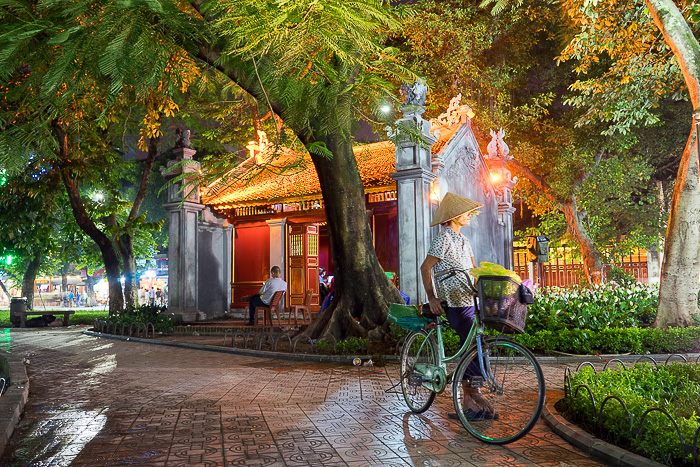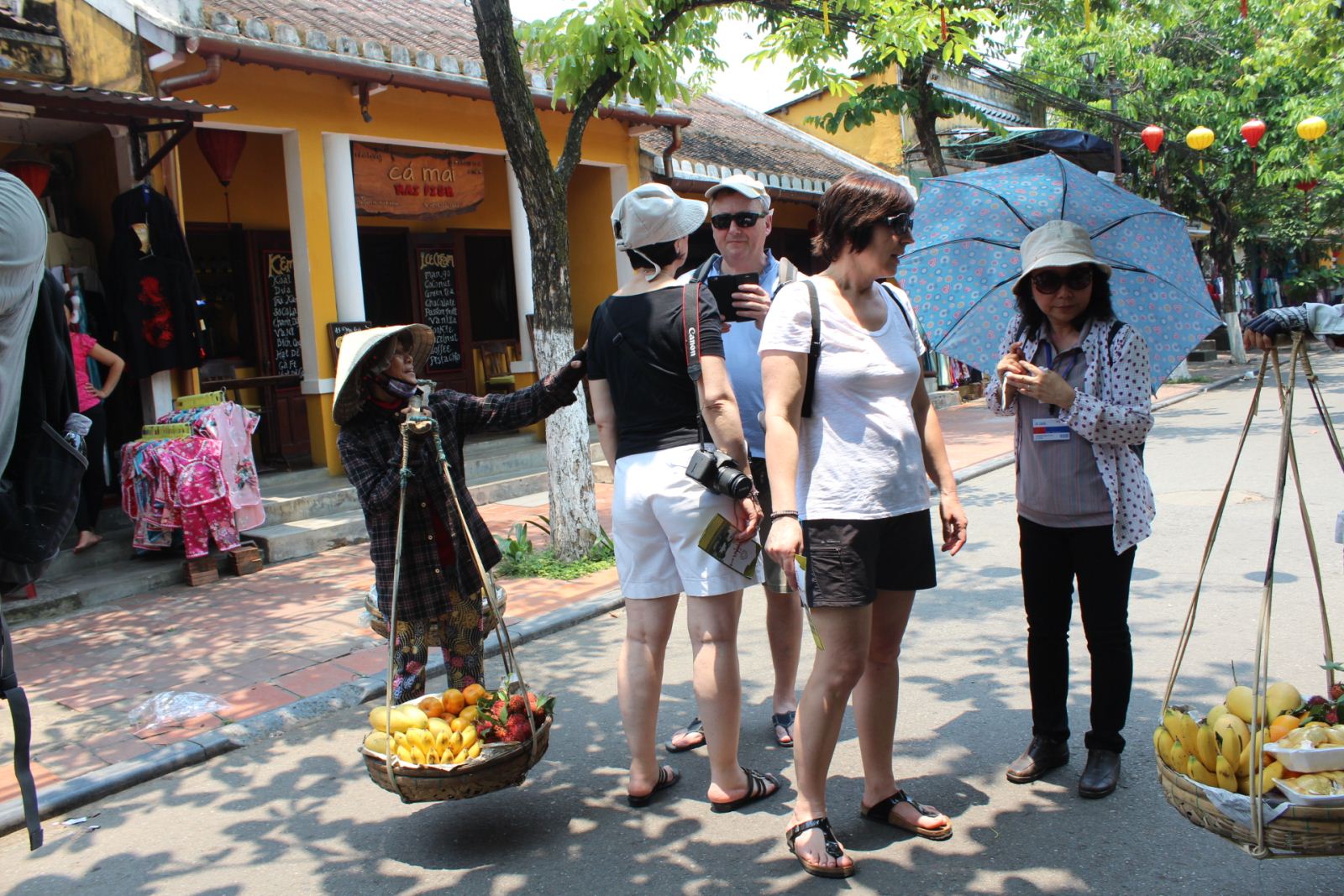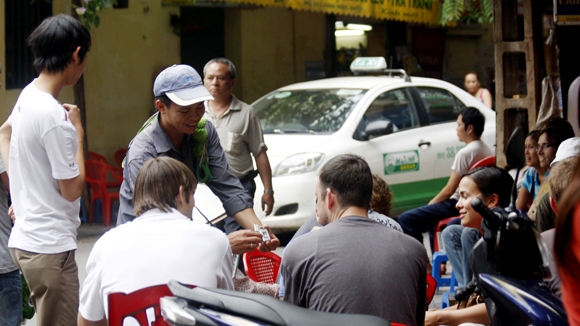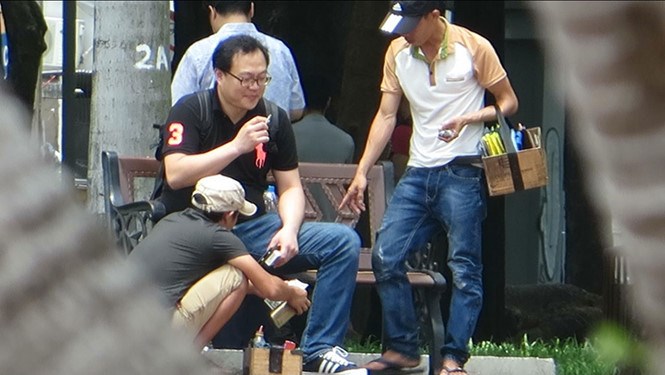Travelers are always the innocent target of scammers, Vietnam is not an exception. To ensure your trip is not ruined by Vietnamese fraudsters, let’s take a look at our tips below before booking a ticket to Vietnam.
Taxi scams
There are countless taxi companies in Vietnam and even more unregistered ones but you can rest assured on companies like Mai Linh, Grab (make sure to book one on your phone’s app) and VinaSun. However, being cautious with any cab you take is dire, here are some tips to avoid taxi scams.
Taxi logos: Many private taxis try to copy the Vinasun or Mai Linh logo to confuse travelers. If you find it hard to recognize real Mai Linh, Vinasun, it’s best to ask for help from local people, they are rather very helpful and friendly towards tourists. An alternative is to have a reliable taxi company’s hotline, so next time you go somewhere, just give them a call. 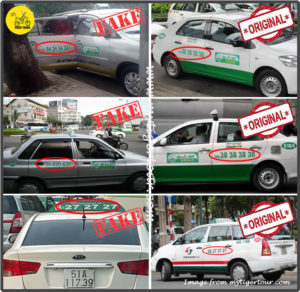
Taxi phone number:
- Mai Linh: (08) 38 38 38 38
- Vinasun: (08) 38 27 27 27
Once you get into the taxi, pay attention to a few details:
ONE, Is the driver wearing a uniform? The top taxi companies have their drivers wear a shirt with a tie, their name tag is visible for guests. The private taxi drivers do not wear any sort of uniform but rather casual clothes.
TWO, Is there a picture of your driver with his name on it? The private ones usually don’t have any information on the inside of the car except the meter.
THREE, Is there any meter counter if there is, did the meter restart before it took you to your address?
A reliable taxi From the front passenger seat view, you can see taxi identification number, driver’s name, license plate number and meter, Map and GPS and Credit card payment system.
If you did not see any Mai Linh’s or Vinasun’s around, other taxi brands are not the worse options but remember to take pictures of plate number and driver’s name tag and ask the driver to turn on meter counter or discuss your price beforehand.
In the worst case, you have to use a private taxi or a fake one, follow 2 steps above:
Firstly, use GPS to calculate distance from the pickup to dropoff destination. Check the distance again with the driver. If he gives a much longer route, politely refuses to use his service.
Secondly, keep your wallet safe. Don’t ever let the driver have any chance to take it from you. Another important thing to keep in mind is learning to differentiate Vietnamese currency, ex: 500,000 VND is easy to be mistaken with 20,000 VND as they are both blue in color.
Street vendors
The reports for missing personal belongings by street vendors appear around big cities like Hanoi, Ho Chi Minh, Da Nang, etc. Be alert when a vendor offers her/his fruit or any-of-the-sort baskets and take a photo for you. They insist you buying their outrageously overpriced products or once the photo is taken, they will demand a fee for their “service”. In this case, it’s best to firmly say “No” and quickly walk away.
Beggars
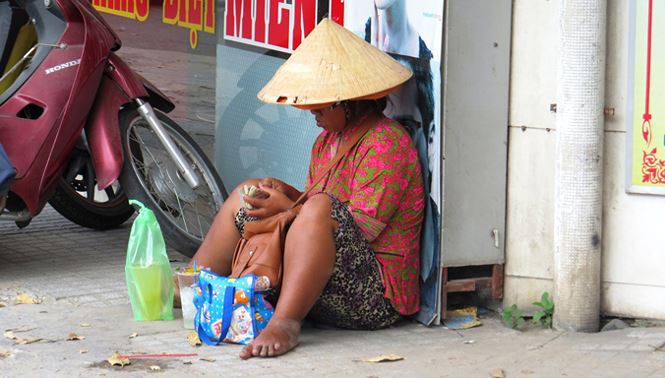 Beggars. It’s common to see them in the streets, at the markets, or in front of temples and pagoda. They intentionally dress dirty and act like they are suffering to expose their body defects and diseases. Some even try to make themselves more pitiable by purposefully contorting their mouth, grinding their teeth or closing their eyes. It is a good deed to give a hand to those in need but begging is regarded as an easy job in Vietnam for lazy people. The tourists are not encouraged to give in to a beggar since that will only draw more beggars.
Beggars. It’s common to see them in the streets, at the markets, or in front of temples and pagoda. They intentionally dress dirty and act like they are suffering to expose their body defects and diseases. Some even try to make themselves more pitiable by purposefully contorting their mouth, grinding their teeth or closing their eyes. It is a good deed to give a hand to those in need but begging is regarded as an easy job in Vietnam for lazy people. The tourists are not encouraged to give in to a beggar since that will only draw more beggars.
Overcharging
In almost Southeast countries, many individuals see tourists as walking ATM. Therefore, you need to be sure about the REAL price before you purchase any services from any local shops, restaurants. Here are the keys to avoiding being overcharged in Vietnam:
- Go for visible fixed prices: buy things at places where prices are fixed. In that way, you can be guaranteed to get local prices. At places where the price is not public, then follow key 2.
- Ask for the price in advance. This will eradicate almost all of the risk. Always check the bill to see if what you were charged is the same price quoted on the menu.
- Don’t hesitate to bargain. You should offer half or two-thirds of the price the sellers quote you. If they do not agree, you should increase your offer little by little, or just drop it.
- Look for locals. When you want to buy something but not sure about the price, ask the local or look at how much they paid for the same portion. However, it’s wise to ask for the price before you order/buy as the sellers might apply a different price to foreigners. If you find their quote acceptable, just go for it. And if the price is exorbitant, leave it.
- When booking a hotel, always prebook a room by phone or email and ask for details on all fees and charges. This also helps to avoid copycat hotels.
Shoe polishing or repairing
While at a touristy location, watch out for shoe shiners. They will approach you out of nowhere and shine your shoes without being asked before demanding an extortionate amount of money for the service. Those who don’t pay will be threatened until they pay the money. Normally, the shoeshiners go in pairs. One polishes shoes and demand money while the other keeps an eye out for police.
Shoe repair scam is often in Hanoi. Specifically, a guy will stop you and quickly squirt glue on your shoes before you have any time to even think about what is going on. Next, he will convince that your shoes are about to break, then he offers to “repair” if for a small fee. The glue is actually a solvent that dissolves stitches. Believe me, his “small fee” will not ever be less than USD 10. In such cases, a firm but polite “NO” is useful for most of them.
